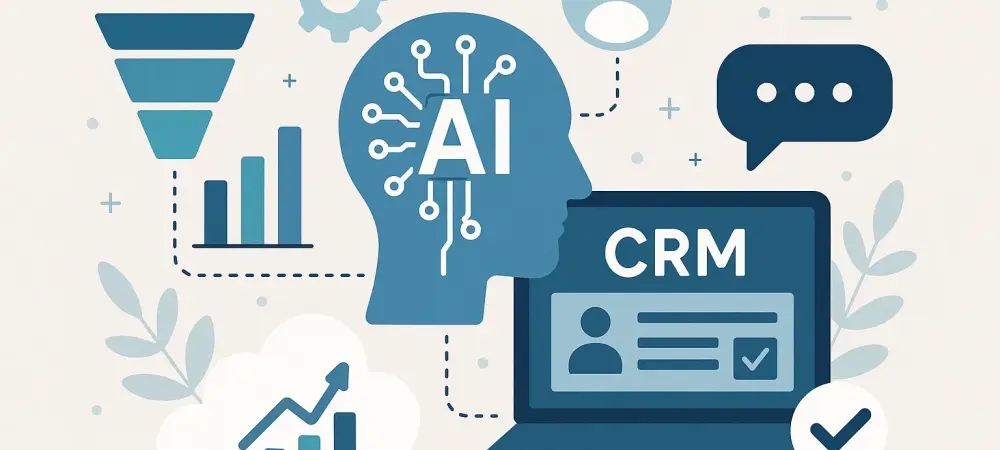Salesforce’s Agentforce 3 significantly elevates the realm of AI-driven customer relationship management systems, signaling a major shift in how businesses approach digital labor. By focusing on enhanced visibility and control, this innovation responds directly to enterprise demands for better scalability in AI agent deployment. Companies are challenged to embrace AI advancements while ensuring stability and adaptability across varied operational landscapes, making Agentforce 3 a critical tool in achieving efficient digital transformations.
Market Dynamics and Strategic Importance
In the competitive arena of customer relationship management software, Salesforce’s recent launch brings formidable changes to AI interaction models. Businesses are increasingly integrating AI solutions to optimize processes and gain deeper insights. Agentforce 3 emerges as a pivotal development in this context, particularizing areas like agent scalability and monitoring within CRM systems. Its strategic importance lies in empowering enterprises to not only deploy AI agents effectively but also control and adapt their usage dynamically, advancing toward seamless integration of AI functionality in standard operational workflows.
Comprehensive Analysis of AI Advancements
Agentforce 3 introduces profound enhancements through its Command Center, characterized by state-of-the-art observability and evaluation tools for AI agents. This platform stands out for its ability to facilitate intricate monitoring and performance assessments, fundamentally strengthening AI agent integration with human teams. Enhanced interoperability with existing data analytics and monitoring platforms proves instrumental in achieving real-time data integration and proactive AI management strategies. Organizations can thus transition from reactive to proactive stances in agent operation, enabling improved efficiency and oversight.
Further detailing these advancements, Agentforce 3 offers tools such as Agent Health Tracking and Performance Dashboards. These features collectively provide measurable insights into agent performance, helping enterprises to optimize functionality without compromising quality. The integration of open standards within its framework enhances the seamless adaptiveness to established enterprise tools and systems, supporting robust interconnectivity.
Industry Adoption and Ecosystem Expansion
Agentforce 3 steps into the market with an emphasis on interoperability, a crucial factor in fostering an expansive AI ecosystem. Through partnerships with MuleSoft and Heroku, it simplifies API integration and infrastructure management, creating a coherent environment for multi-agent orchestration. Salesforce’s collaboration with prominent launch partners like AWS, Box, Google Cloud, and PayPal exemplifies the breadth of capabilities that can be achieved post-deployment, with the AgentExchange platform enabling users to augment AI agent functionality readily. The platform’s architecture is defined by its Atlas framework, which offers reduced latency and expanded language support, signifying Salesforce’s ambition for global service coverage. The adaptability of the architecture ensures the reliability and responsiveness required in diverse international markets, paving the way for broader agent deployments across regions such as Canada, the UK, India, Japan, and Brazil.
Strategic Forecast and Future Outlook
The trajectory set by Agentforce 3 indicates a robust future for AI in CRM systems. As enterprises continue to leverage AI for improved efficiency, Salesforce’s solution sets a precedent for enhanced transparency and control within agent deployments. The strategic partnerships and technological innovations embedded within its framework are likely to accelerate AI adoption across various sectors, with projected expansions in international markets showcasing the capacity for scalable growth. Companies need to remain vigilant of potential regulatory impacts and emerging risks associated with AI CRM advancements. Salesforce’s adoption of open standards indicates a proactive approach to addressing these complexities, supporting sustainable and secure deployment practices. Expert predictions suggest that Agentforce 3 will drive new layers of efficiency and value creation in enterprise operations, leading to significant transformation in CRM paradigms.
Insights and Strategic Recommendations
Understanding Agentforce 3’s innovations, businesses are encouraged to adopt strategic practices that leverage enhanced AI observability for better agent control. The comprehensive integration features offer an opportunity for companies to streamline operations and promote proactive management of AI resources. Enterprises should consider prioritizing infrastructure upgrades and investing in partnerships that amplify the benefits of open standards. The potential for competitive advantage through Salesforce’s solutions encourages organizations to align AI deployment strategies with broader business objectives. By fostering integration across AI agents and human teams, businesses can enrich customer experiences, drive cost efficiency, and cultivate innovation in service delivery. Agentforce 3 delivers a transformative leap in CRM capabilities, urging industry players to explore new methods and avenues for digital evolution.
Reflection and Strategic Implications
Agentforce 3 has redefined AI CRM solutions, providing enterprises with the tools to navigate the complex relationship between technological advancement and operational efficacy. The innovations present an opportunity for businesses to refine their AI strategies, ensuring scalable deployments that extend beyond traditional boundaries. As AI continues to evolve CRM systems, companies are positioned to embrace these transformations, create sustainable management models, and ultimately revolutionize customer engagement experiences in the years to come.

